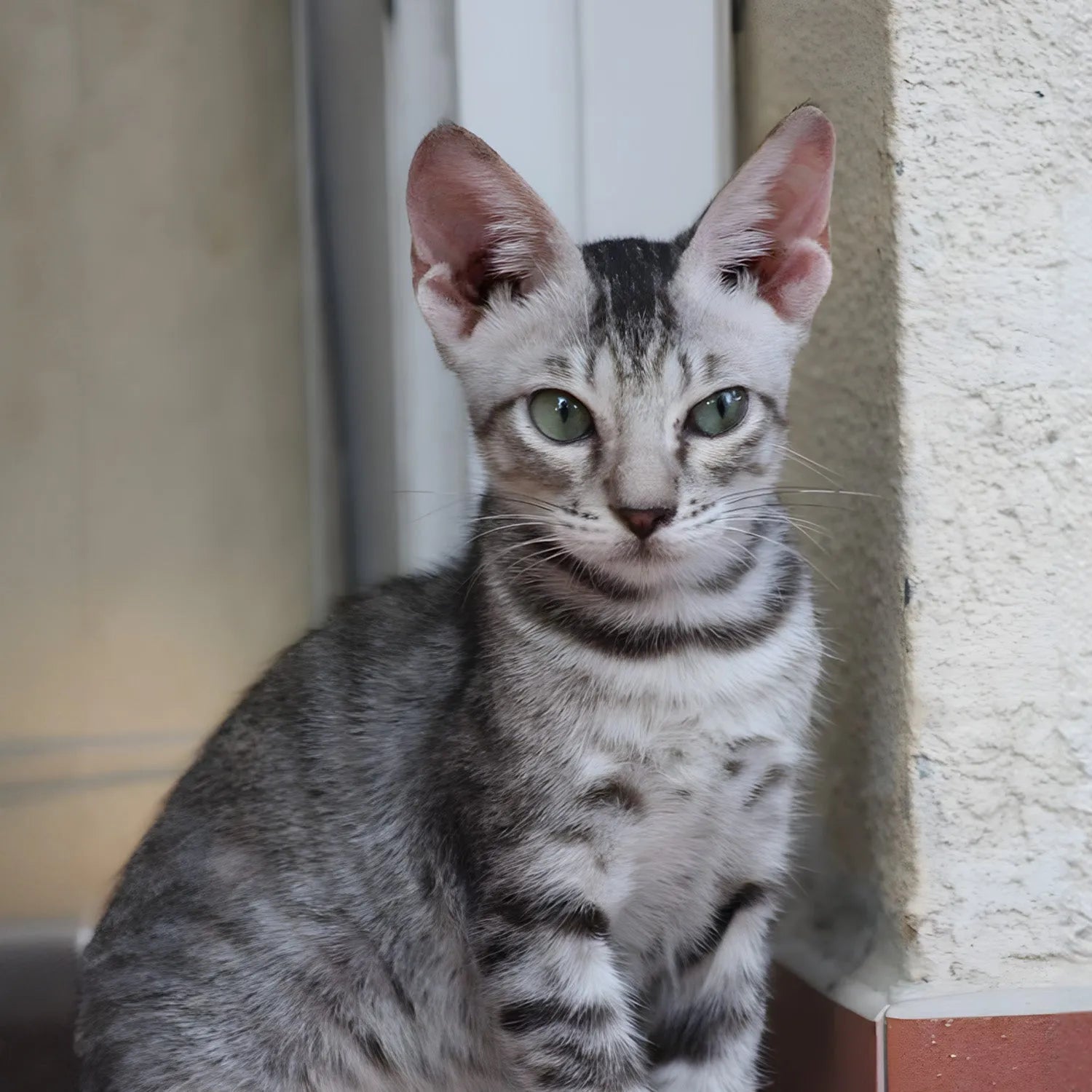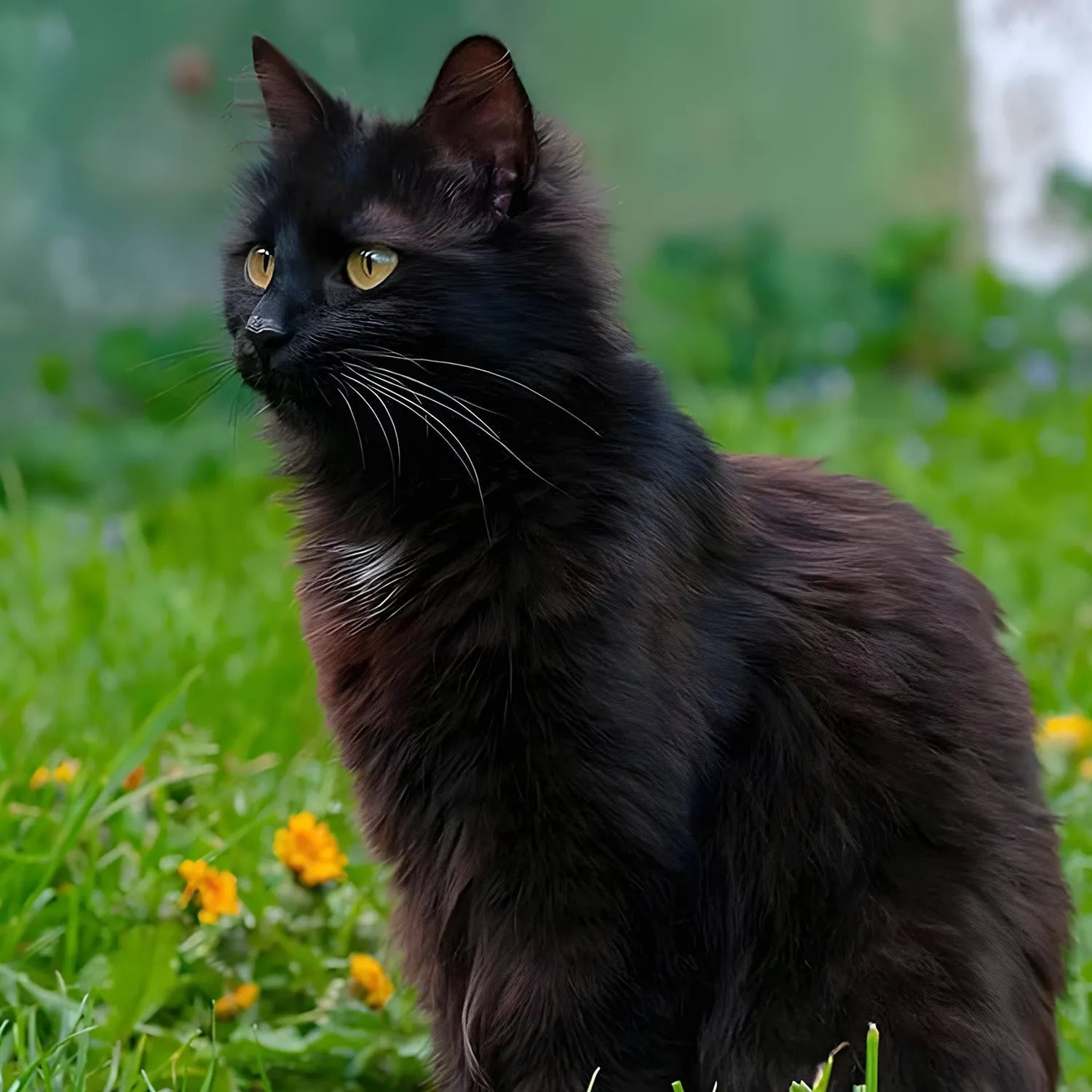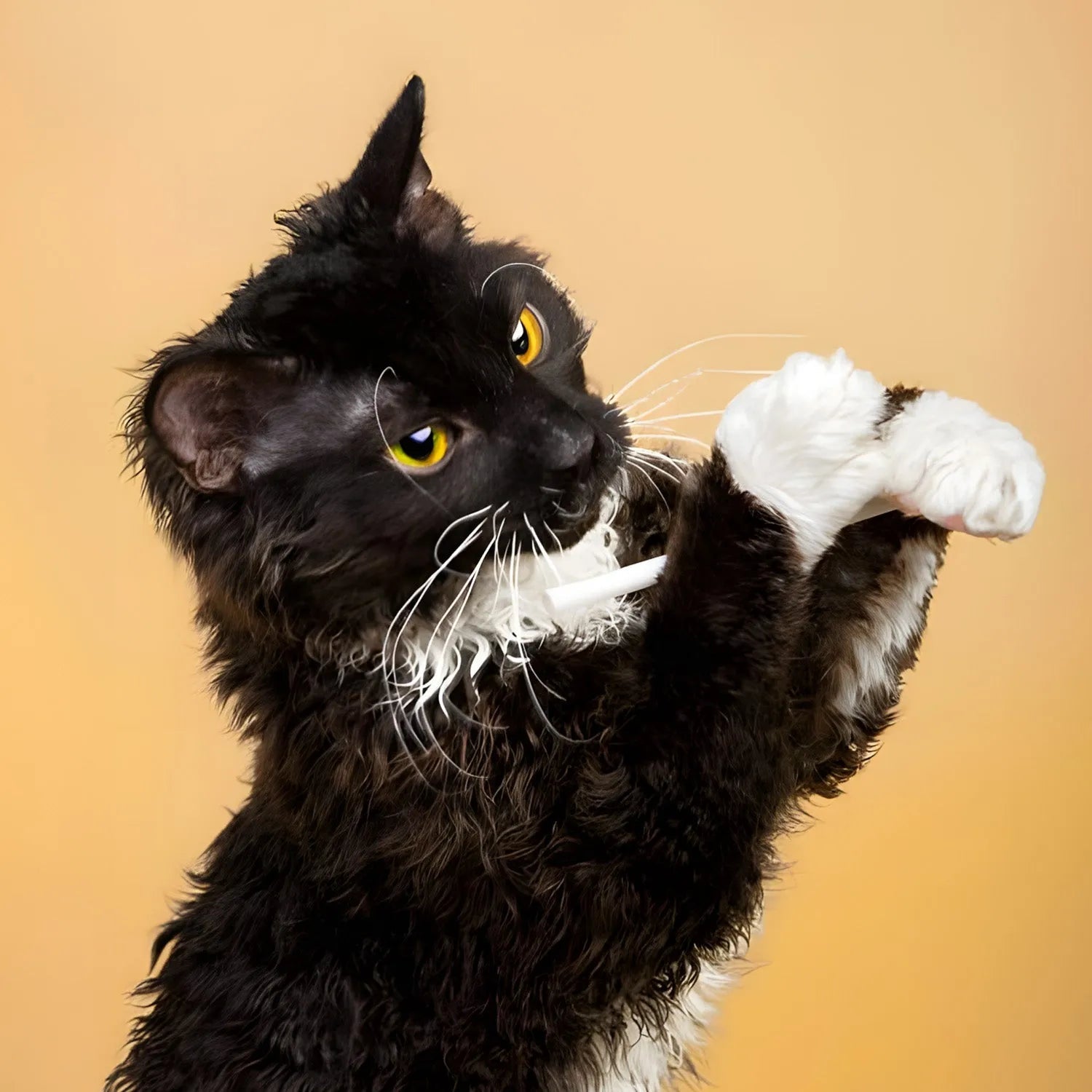Bombay Cat: The Miniature Panther with a Loving Heart
Introduction
The Bombay cat is a striking breed that resembles a miniature panther, with its sleek, black coat and mesmerizing copper or gold eyes. This breed is not only known for its exotic appearance but also for its affectionate and social personality. Often described as a "lap cat," the Bombay is a perfect companion for those seeking a loving and interactive feline friend. In this blog, we’ll explore the Bombay cat’s lifestyle, behavior, grooming needs, trainability, and how it interacts with humans and other pets.
Ratings (1-5)
-
Environmental Adaptability: 4
-
Food Consumption: 3
-
Need for Companionship: 5
-
Trainability: 4
-
Tolerance of Children: 5
-
Ease of Domestication: 5
History and Origins
The Bombay cat breed was developed in the United States in the 1950s by breeder Nikki Horner, who set out to create a domestic cat that resembled a black panther. To achieve this goal, she crossed a sable Burmese with a black American Shorthair. The result was a sleek, black cat with a muscular build and striking copper or gold eyes. The breed was named "Bombay" after the Indian city, in reference to the black panthers found in the region. The Bombay cat was officially recognized by cat associations in the 1970s and has since become a popular breed for those seeking a cat with an exotic appearance and a loving personality.
Physical Characteristics and Colors
The Bombay cat is a medium-sized cat with a muscular build and a sleek, jet-black coat that lies close to the body. The coat is short, glossy, and feels like satin to the touch. One of the most striking features of the Bombay cat is its eyes, which are large, round, and can be a vivid copper or gold color, creating a stunning contrast against the black coat. The breed's head is rounded, with a short, broad muzzle and well-spaced ears. The overall appearance of the Bombay is one of elegance and power, much like the black panther it was bred to resemble.
Lifestyle and Behavior
Bombay cats are known for their affectionate and social nature. They are often described as "velcro cats" because they love to be close to their human companions, often following their owners around the house and curling up on their laps. This breed thrives on human interaction and does not like to be left alone for long periods. Bombay cats are also playful and enjoy interactive games, making them a great choice for families with children or other pets. Despite their love for play, they are also content to relax and enjoy quiet moments with their owners.
Trainability and Intelligence
Bombay cats are intelligent and can be trained to follow basic commands and perform tricks. They are quick learners and respond well to positive reinforcement techniques, such as treats and praise. Bombay cats enjoy mental challenges, making them adept at learning new things, whether it's fetching, sitting on command, or even walking on a leash. Their intelligence also makes them highly adaptable to changes in their environment, and they often enjoy learning new routines or exploring new spaces. Training sessions with Bombay cats are often a rewarding experience for both the cat and the owner, as they bond over interactive play.
Social Behavior and Human Interaction
Bombay cats are extremely social and form strong bonds with their human families. They are known for their affectionate nature and enjoy being involved in every aspect of their owner’s life. This breed is often happiest when it is in the company of its human companions, and it will follow its owners from room to room, often seeking out attention and affection. Bombay cats are particularly known for their loving and gentle demeanor, making them ideal companions for those seeking a loyal and affectionate pet. They are generally quiet cats, but they will communicate with their owners through soft meows and purrs.
Compatibility with Children and Other Pets
Bombay cats are excellent companions for children. Their playful and gentle nature makes them a great match for families. They enjoy interactive play and are generally tolerant of children's antics, provided they are treated with respect. Additionally, Bombay cats tend to get along well with other pets, including dogs, as long as they are properly introduced. Their sociable and adaptable nature allows them to integrate well into multi-pet households, and they often enjoy the company of other animals as much as they do humans. Bombay cats are known for their ability to form strong bonds not only with their human families but also with other pets in the household.
Grooming and Care
The grooming needs of a Bombay cat are minimal due to their short coat. Weekly brushing is usually sufficient to remove loose hairs and keep their coat looking shiny and healthy. Regular dental care, ear cleaning, and nail trimming are also important to maintain their overall health. Despite their low-maintenance grooming needs, Bombay cats enjoy the bonding time that grooming sessions provide, and it can be a great way to strengthen the bond between cat and owner. Bathing is generally not necessary unless the cat gets particularly dirty, as Bombay cats are generally good at keeping themselves clean.
Health and Lifespan
Bombay cats are generally healthy cats, but like all breeds, they can be prone to certain genetic conditions. These may include hypertrophic cardiomyopathy (a form of heart disease) and respiratory issues due to their short muzzle. Regular veterinary check-ups and a balanced diet are essential to maintain their health. With proper care, Bombay cats can live up to 12-16 years or more. Regular monitoring and preventive care are important to ensure a long and healthy life for your Bombay cat.
Environmental Adaptability
Bombay cats are adaptable and can thrive in various living environments, although they are particularly well-suited to indoor living. They are known for their resilience and can adjust well to different climates and household settings. Whether in an apartment or a house, Bombay cats will find ways to entertain themselves and stay active. However, they do best in environments where they can receive plenty of attention and interaction from their owners. Their adaptable nature makes them well-suited to a wide range of living conditions, and they are equally comfortable as indoor cats.
Feeding Requirements
A balanced diet is crucial for maintaining the Bombay cat's health and energy levels. High-quality cat food that is rich in protein is recommended. Fresh water should always be available. Consult your veterinarian for specific dietary recommendations based on your cat's age, weight, and health needs. Monitoring their diet to prevent obesity is essential, as Bombay cats can be prone to overeating if not properly managed.
Conclusion
The Bombay cat is a miniature panther with a loving heart, bringing beauty and companionship to any household. Their intelligence, affectionate nature, and striking appearance make them wonderful pets for families and individuals alike. If you’re looking for a cat that combines an exotic look with a gentle and sociable personality, the Bombay might be the perfect fit for you.
For more information about other cat breeds and pet care tips, stay tuned to our blog!
References:
-
Taylor, J. (2021). "The Sleek and Affectionate Bombay Cat." *Journal of Feline Studies*, 35(3), 201-215.
-
Richards, A. (2020). "Caring for Your Bombay Cat: A Comprehensive Guide." *Cat Lover’s Magazine*, July issue, pp. 30-40.
-
Lee, M. (2019). "Health and Wellness in Bombay Cats." *Veterinary Journal*, 79(2), 123-137.


